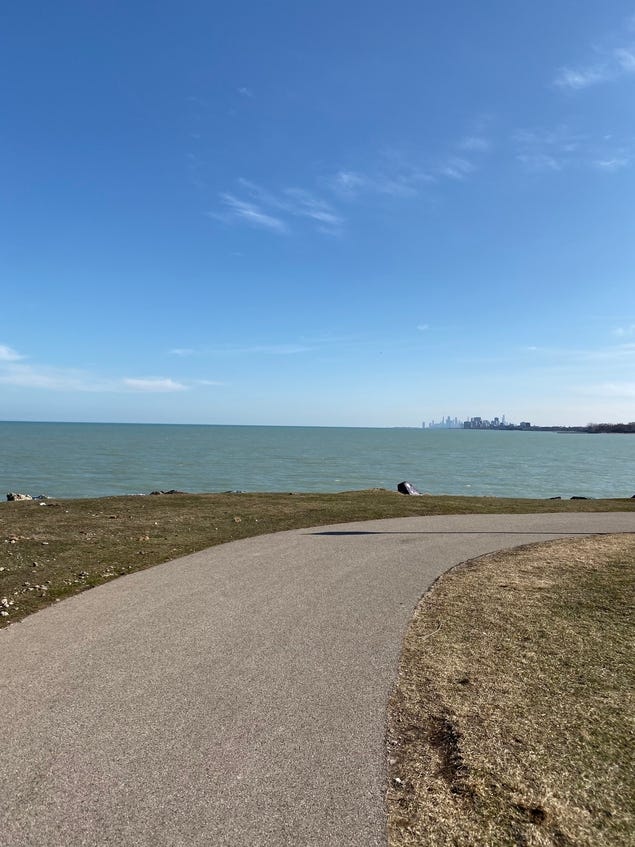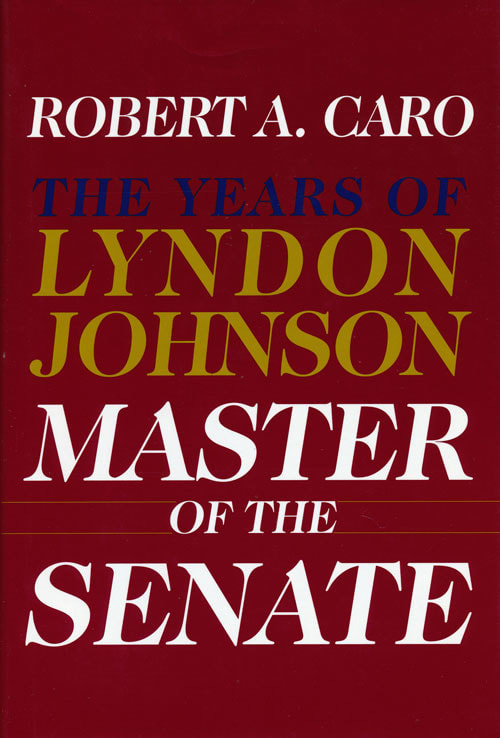Sunday Snapshots (29th March, 2020)
The Crown, Master of the Senate, MSCHF, General Magic, and new recipes
Hey everyone,
Greetings from Evanston!
I hope everyone’s WFH schedules have settled in and you’re not checking the news every 10 minutes. I’ve been catching up with my friends (via Zoom of course) and just enjoying the extra free time.
What have I done with all this free time? Two things:
I just published a 3800+ word essay on an episode of The Crown, one of my favorite TV shows. It covers themes of obsolescence, lack of achievement, jealousy of other people’s achievements, feeling trapped by obligations, and meeting your heroes. All these are heightened by palace politics and the trappings of power. I hope you like it.
I’ve been going on long walks along the lakefront in Evanston. With most of the student population gone and the at-risk elderly population staying inside, the streets are desolate.
With that out of the way, let’s get into this week’s Snapshots where I want to talk about:
Master of the Senate by Robert Caro
MSCHF and audience-first companies
General Magic
And more!
Book of the week
I’ve written about Master of the Senate before, but as I gear up for writing my book, Lessons from LBJ, I’ve been re-reading Caro’s books and the second half of this book is so good that I wanted to dissect it here. This is the third volume in Robert Caro’s Years of Lyndon Johnson series, the definitive biography of Lyndon Johnson and the gold standard against which all other biographies are measured. There are three big parts – the great cause of civil rights and how the South opposed it, what happened when compassion and ambition clashed in Lyndon Johnson’s life, and how he helped pass the Civil Rights Act of 1957 and why it was important despite being a weak bill.
Let’s dig into one by one:
The Great Cause: Despite the thirteenth amendment being ratified in 1865, African Americans in the Southern part of America did not equal legal rights. This was the great cause for civil rights leaders after the two world wars. While many African American veterans had expected a warm welcome home, they faced the same discrimination they had for two centuries. America’s promises clashed with America’s practices. And as great of a cause civil rights was for the African Americans, it was an even greater cause for the South – it was called the Lost Cause. The pain of defeat was still felt in the old confederate states and while many a civil rights bills had been drafted by various administrations and even passed by the House of Representatives, they were all for nothing against the dam that was the Senate. For the Senate was controlled by a coalition of Southern Democrats and Midwestern Republicans who were against Civil Rights. And this great Southern cause had a great general to lead them – Richard Russell of Georgia. Russell was not overtly racist in his comments like other Southern Senators, but his commitment to the cause was no less intense. While the other Southern Senators would talk about how the African Americans were inherently inferior to the white man, Russell would couch his comments in the language of states rights and a preservation of peace. This made him very effective. As Caro writes, “his charm was more effective than chains in keeping black Americans shackled to their terrible past.” It was in this context that Lyndon Johnson – against a stronghold of southern Senatorial power – had to pass a Civil Rights bill.
Compassion and ambition: He had to pass a civil rights bill to rid him from the so called “taint of magnolias” that rubbed against every Southern when they wanted to acquire national power. Since the Civil War, there had been no Southern presidents. Richard Russell had lost his presidential campaign in 1952. Lyndon Johnson lost his in 1956. He was determined to fix his record on Civil Rights to become more palatable to a broader population. But there was not just ambition, but compassion behind his desire to pass a civil rights bill. First, he grew up in the Hill Country of Texas where there was less prejudice against African Americans to begin with. But also because he was tied with them in another way – poverty. Lyndon Johnson grew up not only in one of the poorest parts of the country, but in one of the poorest families in one of the poorest parts of the country. When he had to skip school for a year to earn money to pay for it, he taught Mexican immigrants on the Texas-Mexico border. During his time there, he helped those children get a good education and play sports like the rich kids did. He cared. But whatever compassion he had, it paled against his outsized ambition. He became a master of the Senate through the help of the South and for most of his term as a Senator casted votes against Civil Rights. But his ambition for senatorial power clashed against his grandest ambition of all – to become President. So when his compassion and ambition were aligned, he used every thing he had learned as Majority Leader to pass a Civil Rights bill.
Civil Rights Act of 1957: While the Southern Senators were undoubtedly prejudiced, they were also constitutionalists. This gave Lyndon Johnson an opening. While he was not able to get them to agree on a full Civil Rights bill that would end segregation, he was able to get them to vote freely. But even that concession came with a caveat – the Federal Government could not indict someone who hindered anyone’s ability to vote, that could only be done by a jury. But of course, no southern jury composed of southern men would indict another southerner. It was a classic loophole. But it was the price to pay if Lyndon Johnson wanted a civil rights bill and clean his record as he prepared for the candidacy of President of the United States in 1960. So he paid it. Through a combination of legislative brilliance and a series of unlikely alliances, he passed that bill. And while that bill was practically ineffective, it gave African Americans and civil rights leaders a key component of their future victories – hope. Over the 50 years preceding this bill, countless Civil Rights bills had come to the Senate, but none had passed the Southern dam and its great general. Lyndon Johnson had demonstrated that breaking the dam was possible. And that meant he could do it again. And that meant that they could it again. They would – eventually and in small steps – overcome.
If you’re interested in more Lyndon Johnson, I talked about the last volume in Caro’s Years of LBJ series in three parts – part 1, part 2, and part 3.
Business move of the week
MSCHF and audience-first companies
This week, MSCHF dropped their latest product – “Branded Books.” They do new drops every second and fourth Tuesday at 11am EST. What do they usually drop? Well, that's not so clear.
They include: Jesus shoes, Mystery boxes, and Shuffled streaming. There is seemingly no unifying theme. And that is the theme. The products don’t matter, because MSCHF has got the audience.
Enter audience-first companies.
According to David Perell’s article on them, these companies build up their brand around some manufactured idea of scarcity – in MSCHF’s case, limited number of products in every drop. Then they release their products. With a little bit of perseverance and luck, you can generate enough viral momentum in one drop that can then be transferred to future drops. Then, they scale their businesses to future growth.
Three things drive these companies:
Delight/Experience: In a world of abundance when anything is a click away, they provide the thrill of refreshing your page 10 times to check if you can buy a product or not. There is also the truly unique experience of the MSCHF’s app. It’s retro, it’s distinct, and in a world with flat design and polished gestures, it’s novel.
A robust reseller market: Just like other drop-based companies like Supreme, the manufactured scarcity leads to a robust reseller market and all the trappings that come along with that – bots, eBay up-charges, and social status. These are all self-reinforcing post the initial brand building.
Top of the business cycle: I find it difficult to imagine this company getting a lot of traction if it started today. Unemployment is at unprecedented highs, small businesses are running out of cash, and there is no end in sight for the medical crisis. Everyone across the board is going to become more conservative with their finances. That means luxury indulges like this become difficult to justify. They might still be able to attract a niche audience and sustain a business, but they just hit a tailwind like everyone else. It will be interesting to see how they (or if they) change their playbook.
Let me know your thoughts on the MSCHF and audience-first companies by replying to this email or sending me at DM on Twitter.
Random corner of the week
How Hip-Hop Helped Cash App Grow Faster by Dan Runcie
While I love everything Dan writes, this piece hit at the intersection of my interests in tech, hip-hop, and strategy. Cash App is slowing overtaking Venmo as the peer-to-peer payment app of choice.
What’s fueling this growth? Hip-hop.
Dan argues that #cashappfridays in collaboration with hip-hop artists has been a great customer acquisition channel. It introduces common people to its highest margin businesses – like equity and cryptocurrency investing.
This paragraph was my favorite as it signals an important paradigm shift for building audiences:
Cash App’s user base is strongest in the South and the Midwest of the US, which aligns with the regions where many hip-hop fans are at. It’s the opposite of most founders who focus first on their “early adopter” personal networks in the coastal metro hubs in New York and San Francisco. This strategy made more sense years ago when broadband internet access was noticeably stronger in tech hubs and universities, but that’s no longer the case. It’s 2020. Smartphones are now ubiquitous. It’s time to think beyond Mark Zuckerberg’s Ivy League expansion plan that worked for Facebook in 2004.
You should subscribe to Dan’s newsletter, Trapital, where he breaks down how hip-hop and business intersect as the genre’s influence increases.
Documentary of the week
Before there was an iPhone, there was a vision:
A very personal object. It must be beautiful. It must offer the kind of personal satisfaction that a fine pair of jewelry brings. It will have a perceived value even when it is not being used. It should offer the comfort of a touchstone. The tactile satisfaction of a seashell. The enchantment of a crystal. Once you use it, you won’t be able to live without it.
While it sounds like I’m quoting Jony Ive from an Apple commercial for the iPhone, this is actually the vision laid out by a now-defunct company from the 90’s called General Magic. The company had some serious talent – most of the upper echelon of Apple’s original Macintosh team and upcoming talent like Tony Fadell. They wanted to create the future of personal computing – a handheld device that didn’t just commute, but also communicated and created content. Something that you could live you life through.
They failed.
They failed because they tried to build everything from scratch – USB interfaces, text viewers, and animated emoticons. They failed because they didn’t consider palace politics when bringing on the consortium of Sony, Apple, AT&T, and Motorola amongst others. They failed because they missed the admittedly hard-to-read writing on the wall about the internet.
But above all, they failed because the timing wasn’t right.
This documentary is about that failure and how it laid the seeds for the iPhone. I really enjoyed watching it and if you’re even tangentially interested in technology, I know you will too.
That wraps up this week’s Sunday Snapshots. If you want to discuss any of the ideas mentioned above or have any books/papers/links you think would be interesting to share on a future edition of Sunday Snapshots, please reach out to me by replying to this email or sending me a direct message on Twitter at @sidharthajha.
Until next Sunday,
Sid



